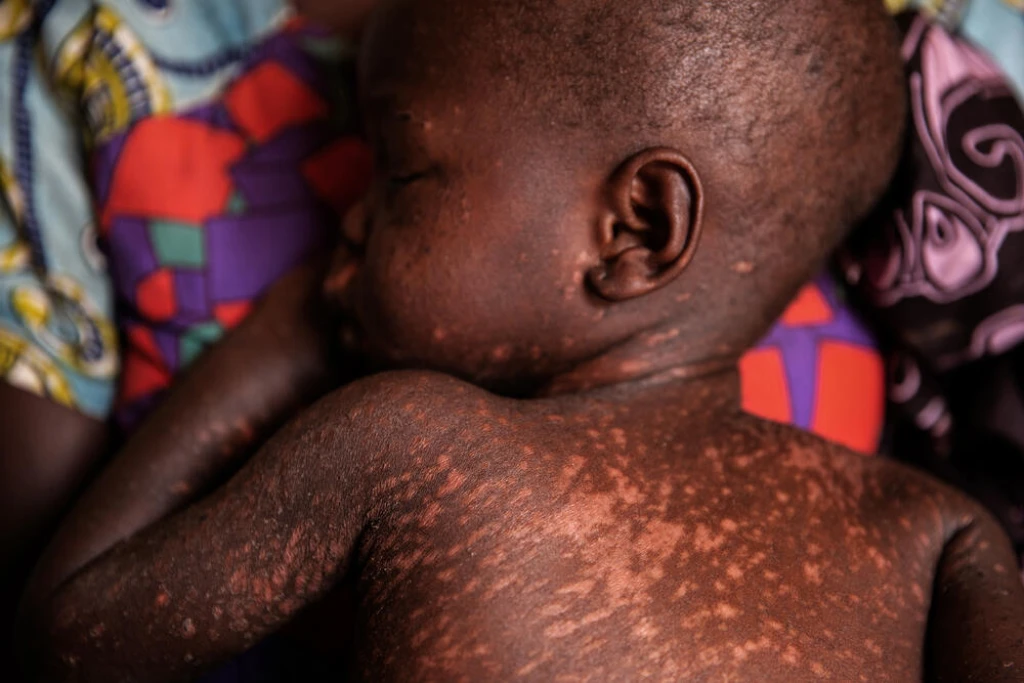
Médecins Sans Frontières (MSF) teams say are recording a concerning rise in measles and malnutrition cases in the organization’s facilities in South Sudan, particularly amongst returnees fleeing conflict from Sudan and host communities.
The cases are among children under five years, according to the health organization.
In a press release seen by The Radio Community, MSF calls on donors and humanitarian actors to urgently improve the surveillance system and scale up the response from the points of entry to the places of resettlement.
“Measles and nutritional responses must be reinforced immediately. Screening and catch-up vaccination at points of entry must be extended to 24/7,” says Mohammad Ibrahim, MSF head of mission in South Sudan, in a statement.
“Equally, mobile vaccination teams must be deployed in transit, reception sites and within host communities to ensure continuous screening and catch-up vaccination for new arrivals that have been missed at the border. Community surveillance must be strengthened to prevent the further spread of measles.”
This, they say, is to ensure dignified conditions for the displaced people and host communities as more returnees are arriving at various border locations.
Since the eruption of the conflict in April 2023, over 200,000 individuals have been reportedly registered crossing to South Sudan as of the first week of August. Over ninety per cent of them are South Sudanese, arriving exhausted and extremely vulnerable, this is according to MSF.
The statement adds that the people, mostly women and children, are either spread across the country struggling to integrate themselves to the communities, or at transit centers close to the border – in both cases requiring essential services such as healthcare, access to clean water and sanitation infrastructure, food and non-food items, protection, and shelter.
“We are in a terrible situation. There is no food. We are living under the trees”, says Nyakiire Nen, whose two-year-old daughter is under treatment for measles at the MSF hospital in Bentiu Internally Displaced People (IDP) camp in Unity state.
“We want three things to survive. The first one is food. The second one is plastic sheets to have a shelter. And thirdly, we need medication.”
To control the influx of measles among the returnees and host community, MSF says they have established isolation wards as the facilities are expanded to treat more patients in Aweil, Leer, and Malakal.
In Twic County, MSF supported the establishment and equipment of a 25-bed-measles isolation center at Mayen Abun Hospital, while supporting the training of frontline healthcare workers on case definition, identification, and management of measles in eight primary health care centers across the County.
In Upper Nile State, Renk is the busiest entry point to South Sudan for those escaping the conflict, many originating from White Nile state, Sudan, where in the past month, MSF teams have identified over 1,300 suspected measles cases.
Since 20 June 2023, the isolation ward set up by MSF in Renk County hospital has received 317 patients, more than 75% being returnees.
In Paloch, MSF launched a three-week emergency intervention on 27th July 2023, focusing on addressing the health and nutrition needs of over 3000 persons residing in the returnees’ camp.
“If a child is malnourished, it is easier to be infected by measles and there is a higher risk of death”, says Ran Jalkuol, an MSF medical doctor.
“Most of our patients are children who are unvaccinated. To prevent measles from taking more lives, there is an urgent need to scale up food support and to conduct catch-up vaccination to immunize everyone, especially returnees of age from six months and above.”